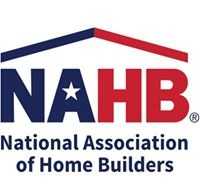WASHINGTON (March 8, 2018) – (RealEstateRama) — The National Association of Home Builders (NAHB) today lauded efforts by the Trump administration and Congress to roll back onerous regulations that hurt home building firms and other small businesses but cautioned that much more needs to be done to further reduce regulatory burdens.
Testifying before the House Small Business Committee, NAHB Chairman Randy Noel, a custom home builder from LaPlace, La., told lawmakers that significant regulatory changes have benefitted home buyers, home owners and home builders, but major regulatory headwinds still linger.
“The first year of Donald Trump’s presidency has seen major progress on efforts to reduce the relentless and costly over-regulation of American industry,” said Noel. “However, while much has been accomplished, the hefty price home buyers are paying for government regulations represents just one more obstacle that home builders need to overcome in restoring the marketplace to normal conditions.”
NAHB estimates that regulations imposed by government at all levels account for nearly 25 percent of the final price of a new single-family home.
“This is not just a problem for the small businesses that build them,” said Noel. “It also has a negative effect on Main Street Americans by making affording a home that much more difficult.”
On the positive side, President Trump has signed executive orders that expanded health care options and rescinded President Obama’s Federal Flood Risk Management Standard, which imposed unanswered regulatory questions that would force developers to halt projects and raise the cost of housing. Trump also signed a resolution of Congress into law that overturned the Volks Recordkeeping Rule. Had it been allowed to stand, the rule would have subjected millions of small businesses to potential citations for paperwork violations, but done nothing to improve worker health or safety.
Still, significant work remains to peel back and revisit the accumulated layers of regulations heaped upon small businesses. Specifically, Noel urged Congress and the administration to revisit and/or reform:
- OSHA’s multiemployer policy. On construction sites, this policy allows OSHA to issue citations to a general contractor (i.e. a home builder) for safety violations created by subcontractors, even if none of the general contractor’s employees are exposed to the hazardous condition.
- EPA’s Lead Renovation, Repair and Painting (RRP) Rule. The rule addresses lead-based paint hazards created by remodeling activities in homes built before 1978. NAHB believes the RRP program is needlessly burdensome, costly, and fails to provide the tools needed for efficient implementation, which discourages home owners from using the services of certified renovators. Further, the lack of a reliable, commercially available lead paint test kit means renovators are left in the dark when it comes to compliance.
- Endangered Species Act (ESA) regulations. The current regulations enable the U.S. Fish and Wildlife Service and National Marine Fisheries Service to assert authority over large swathes of land and a broad array of activities that are rarely associated with species conservation. The consultation requirements remain expensive, burdensome and unwieldy for home builders and other small businesses.
“The only sure way to safeguard against future bad regulation is to fix the broken regulatory rulemaking process itself, ensure all regulations are designed with small businesses in mind, and restore meaningful congressional oversight to the rulemaking process,” said Noel.
Three bill have already passed the House that would largely accomplish these goals: the Regulatory Accountability Act, the Regulatory Flexibility Improvements Act, and the Regulations from the Executive in Need of Scrutiny Act, more commonly known as the REINS Act.
NAHB continues to urge the Senate to take up these important bills.
CONTACTS
Elizabeth Thompson
202-266-8495







